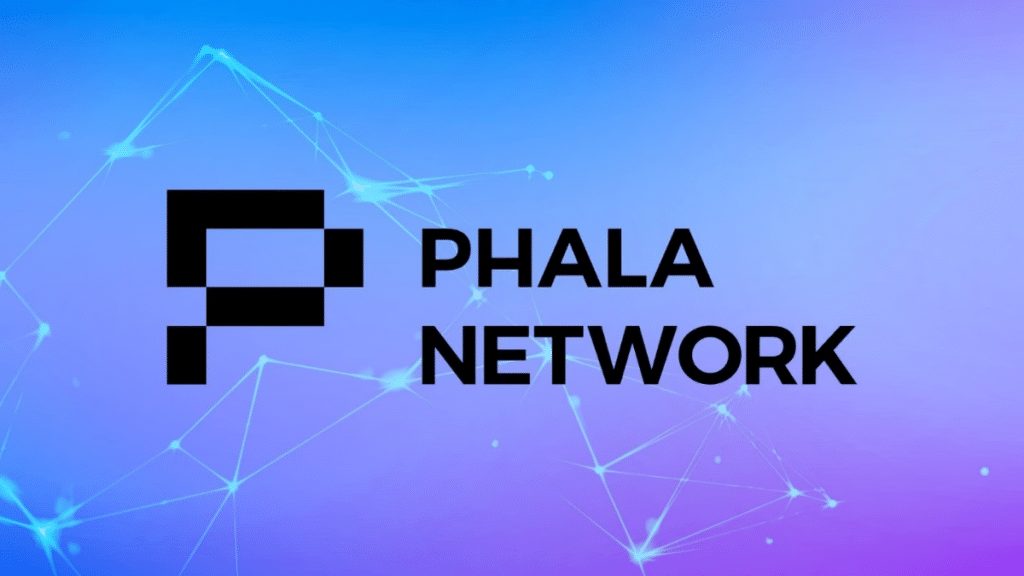In today’s digital age, the need for secure and private decentralized networks has never been greater. Phala Network stands at the forefront of this movement, offering groundbreaking advancements that safeguard data like never before. By focusing on privacy, adaptive access control, and robust consensus mechanisms, Phala is redefining what’s possible in the world of decentralized security. Curious how they’re pulling it off? Let’s dive in. Secure your knowledge on network security with the expertise available at Bitcoin Revolution. Register now for free to learn more and get better at investing.
1. Revolutionizing Privacy: Phala Network’s Pioneering Secure Computation Protocols
Privacy is not just a buzzword—it’s a necessity in our increasingly interconnected world. Phala Network is leading the charge in ensuring that privacy is upheld through advanced secure computation protocols. At the heart of their approach is the use of Trusted Execution Environments (TEEs), which create a secure enclave for data processing.
This allows sensitive information to be handled in a way that is both private and secure, making it nearly impossible for unauthorized parties to access or tamper with the data. Think of it like a secure vault where only those with the right keys can enter, and even then, only under strict conditions.
What’s more, Phala Network doesn’t just rely on one method of protection. They employ a combination of cryptographic techniques to maintain data integrity. This multi-layered approach ensures that the data isn’t just locked away; it’s actively protected from potential threats.
Let’s take a moment to imagine: If someone tries to peek into your private files, they would hit a wall of encryption so dense that it would take years to crack—if they ever manage at all. But, you don’t have to take my word for it. Phala’s protocols have been rigorously tested, with results showing a high level of resistance to common cyber-attacks.
But here’s a question to ponder: How secure is your current data protection? Could Phala’s methods be the upgrade you need? I’d say it’s worth exploring.
2. Dynamic Access Control: Redefining User Permissions in Decentralized Ecosystems
Access control in decentralized networks is like having keys to different doors in a vast digital mansion. But what if those keys could change shape, only fitting the locks they’re meant to at specific times? That’s the level of dynamic control Phala Network offers.
Phala Network is pushing the boundaries with adaptive access control mechanisms that respond in real-time to changing conditions. This means that user permissions aren’t static; they evolve based on the situation, ensuring the right people have access at the right time. Imagine your home’s front door unlocking only when you approach, but remaining impenetrable to everyone else. This kind of smart security minimizes risks and maximizes efficiency.
But it doesn’t stop there. Phala is also leveraging Zero-Knowledge Proofs (ZKPs), a technique that allows users to prove they have access to certain information without actually revealing the information itself. It’s like saying, “I know the secret code,” without ever having to say what the code is.
This approach not only protects user privacy but also makes it much harder for malicious actors to gain unauthorized access. Phala’s methods ensure that security is not just an afterthought but a foundational element of their network.
Now, let me ask you this: How confident are you in the security of your current system? Could Phala’s dynamic approach give you peace of mind?
3. Unbreakable Consensus: Phala Network’s Cutting-Edge Approaches to Secure Decentralization
In the world of decentralized networks, reaching consensus is like getting a group of friends to agree on where to eat—it can be tough, but it’s essential. Phala Network has developed some of the most innovative solutions to this challenge, ensuring that consensus isn’t just achieved, but done so in the most secure manner possible.
One of the standout features of Phala’s approach is their use of hybrid consensus models. These models combine the best of Proof-of-Work (PoW) and Proof-of-Stake (PoS) systems, creating a network that is not only secure but also efficient. It’s like having a double lock on your door—one that’s fast and one that’s incredibly strong.
This dual system is designed to resist centralization, a common issue in many decentralized networks. By involving a larger pool of participants in the decision-making process, Phala reduces the risk of any single entity gaining too much control. Think of it as a democracy where everyone’s vote truly counts, and the system is nearly impossible to rig.
Moreover, Phala’s fault-tolerant architecture ensures that the network remains operational even in the face of unexpected failures or attacks. Imagine a ship that stays afloat and on course, even when hit by a sudden storm.
But here’s something to consider: How secure is the consensus mechanism in the systems you rely on? Could Phala’s unbreakable consensus be the safeguard your network needs?
Conclusion
Phala Network isn’t just keeping up with the demands of decentralized security—it’s setting new standards. Through innovative privacy protocols, dynamic user access, and unbreakable consensus models, Phala is paving the way for a safer, more secure digital future. So, the next time you think about data security, remember: Phala is leading the charge.
